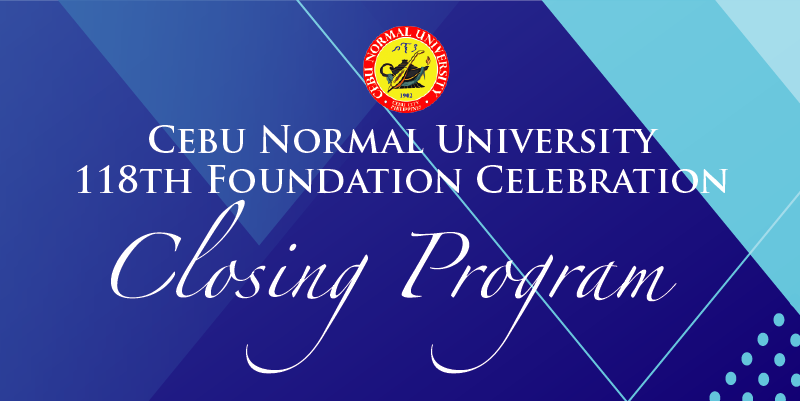Cebu Normal University (CNU) culminated remotely its 118th foundation celebration and 22nd anniversary as a University upholding that it continues to thrive, lead, and serve despite the ongoing health crisis brought by Coronavirus Disease 2019 (COVID-19). The Culminating Program of the 118th founding anniversary of CNU with the theme, Thriving, Leading, and Serving in the New continue reading : CNU nails its virtual foundation celebration closing
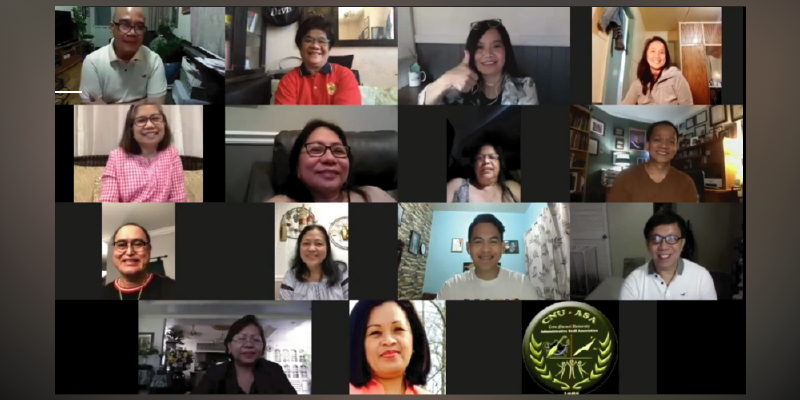
Former CNU educators embody the ‘Normalite’ excellence
Former Cebu Normal University (CNU) faculty members from across the globe shared their experiences and how they adapted to the new normal as they gathered virtually (for the first time in so many years) to commemorate the 118th founding anniversary of the institution. A session called CNU Family Interaction featuring the former educators of CNU who are continue reading : Former CNU educators embody the ‘Normalite’ excellence
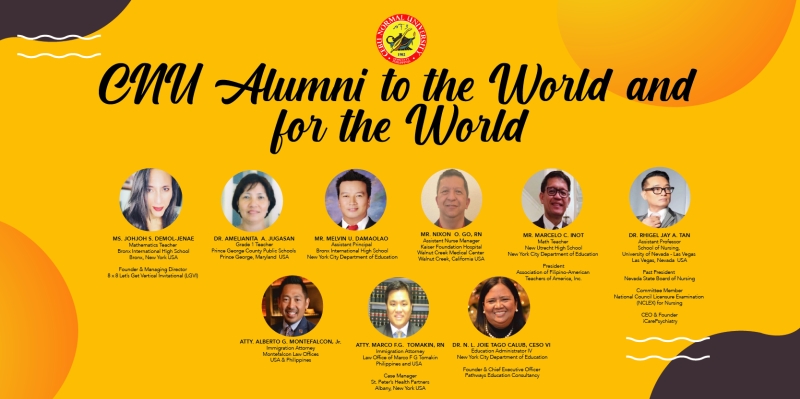
CNU Alumni to the world: Testimonials of excellence
Crimson and gold, which signify excellence, inevitably become part of every Normalite’s identity after they graduate from Cebu Normal University (CNU). This is proven true yet again as some CNU alumni who have already conquered various corners of the globe gave their testament on how they took excellence with them through the talk, CNU Alumni to continue reading : CNU Alumni to the world: Testimonials of excellence
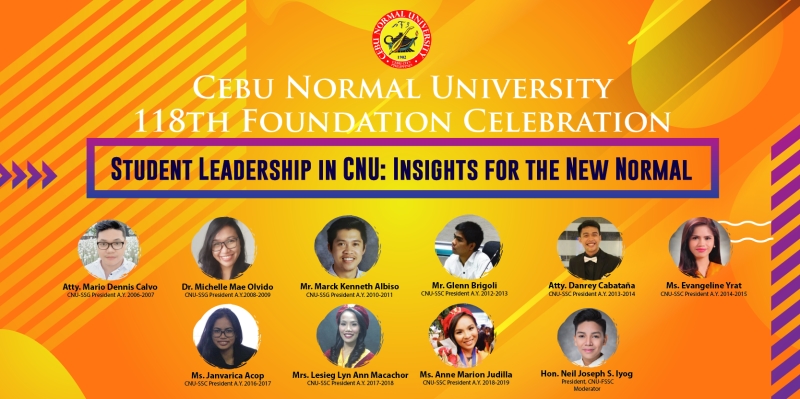
Former student leaders motivate Normalites
10 Normalite student leaders share their insights on leadership in celebration of the 118th founding anniversary of Cebu Normal University (CNU) to inspire students and aspiring student leaders on how to face the upcoming academic year ahead with the new normal. A talk on Student Leadership in CNU: Insights for the New Normal was live-streamed continue reading : Former student leaders motivate Normalites
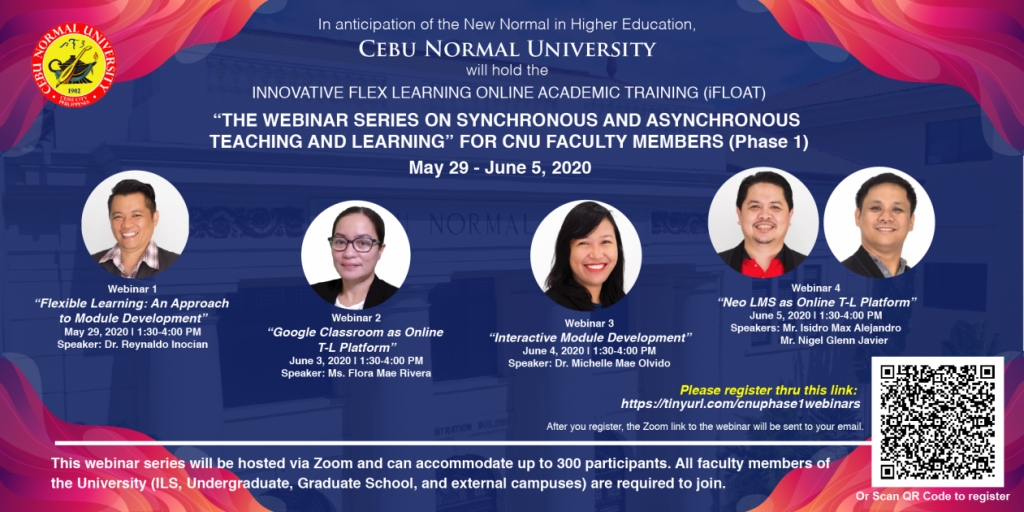
CNU to conduct 1st webinar series
Cebu Normal University (CNU) will conduct its first webinar series to be attended by all faculty members in the University to prepare for the new normal in education come academic year 2020-2021. The Webinar Series on Synchronous and Asynchronous Teaching and Learning for CNU faculty members will take place on May 29 to June 5, continue reading : CNU to conduct 1st webinar series
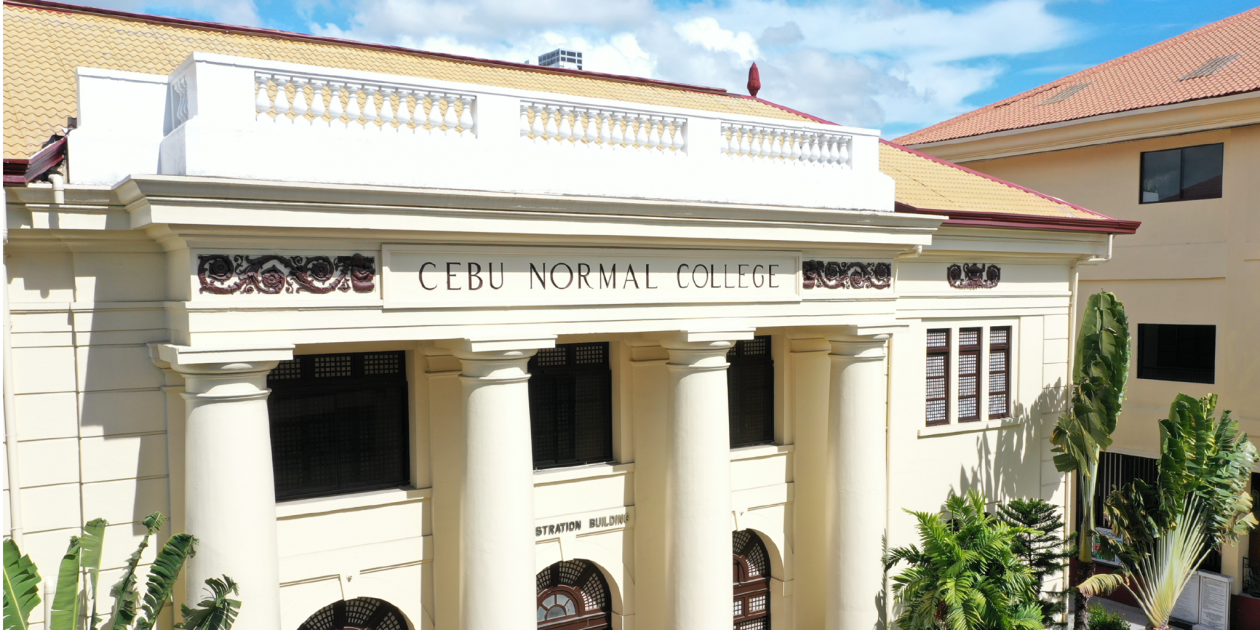
CNU makes sure no student fails this sem
Cebu Normal University (CNU) has adopted a unique modification to the mass promotion concept as it announced the ending of the current school semester through its Strategic Action amid Coronavirus Disease 2019 (COVID-19) Modified Academic Plan (MAP). Read related article: [CNU decides to end the current school semester] “None of the students will be declared failed this continue reading : CNU makes sure no student fails this sem

CNU to hold phone interviews
Cebu Normal University (CNU) will conduct phone or online interviews for the first year qualifiers of AY 2020-2021 as the new normal calls for it to prevent the spread of Coronavirus Disease 2019 (COVID-19). The phone or online interviews will take place from May 18 – June 12, 2020. The pre-enrollment period will follow afterward continue reading : CNU to hold phone interviews

1st Year Qualifiers Schedule of Phone/Online Interview & Pre-enrollment
Attention: First Year Qualifiers for AY 2020-2021 Schedule of phone/online Interview and Pre-enrollment INTERVIEW SCHEDULE May 18 – June 12, 2020 Note: For the interview, a faculty interviewer will contact the student qualifier through mobile phone. Qualifiers are then advised to keep their lines (the ones they provided in the application form) open from May continue reading : 1st Year Qualifiers Schedule of Phone/Online Interview & Pre-enrollment

Teaching-learning in light of COVID-19, CNU’s challenges and response
The class suspension during the Enhanced Community Quarantine (ECQ) brought by Coronavirus Disease 2019 (COVID-19) health crisis has deferred regular classes in schools and has urged educators to explore learning strategies that could better engage students without them being physically present. According to Dr. Daisy Palompon, Cebu Normal University (CNU) Vice President for Academic Affairs, continue reading : Teaching-learning in light of COVID-19, CNU’s challenges and response
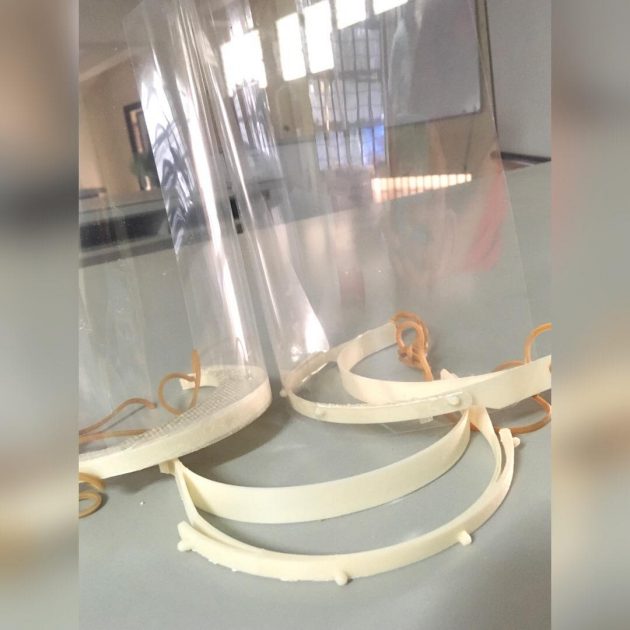
CNU educators help make PPEs
Cebu Normal University (CNU) educators utilized 3D printers in the University to make face shields donated to health workers and medical frontliners in the city. Physics teachers Ms. Clare Maristela Galon and Mr. Allan Roy Elnar, both from the Chemistry and Physics Department of Cebu Normal University (CNU) made use of the 3D printers in continue reading : CNU educators help make PPEs

